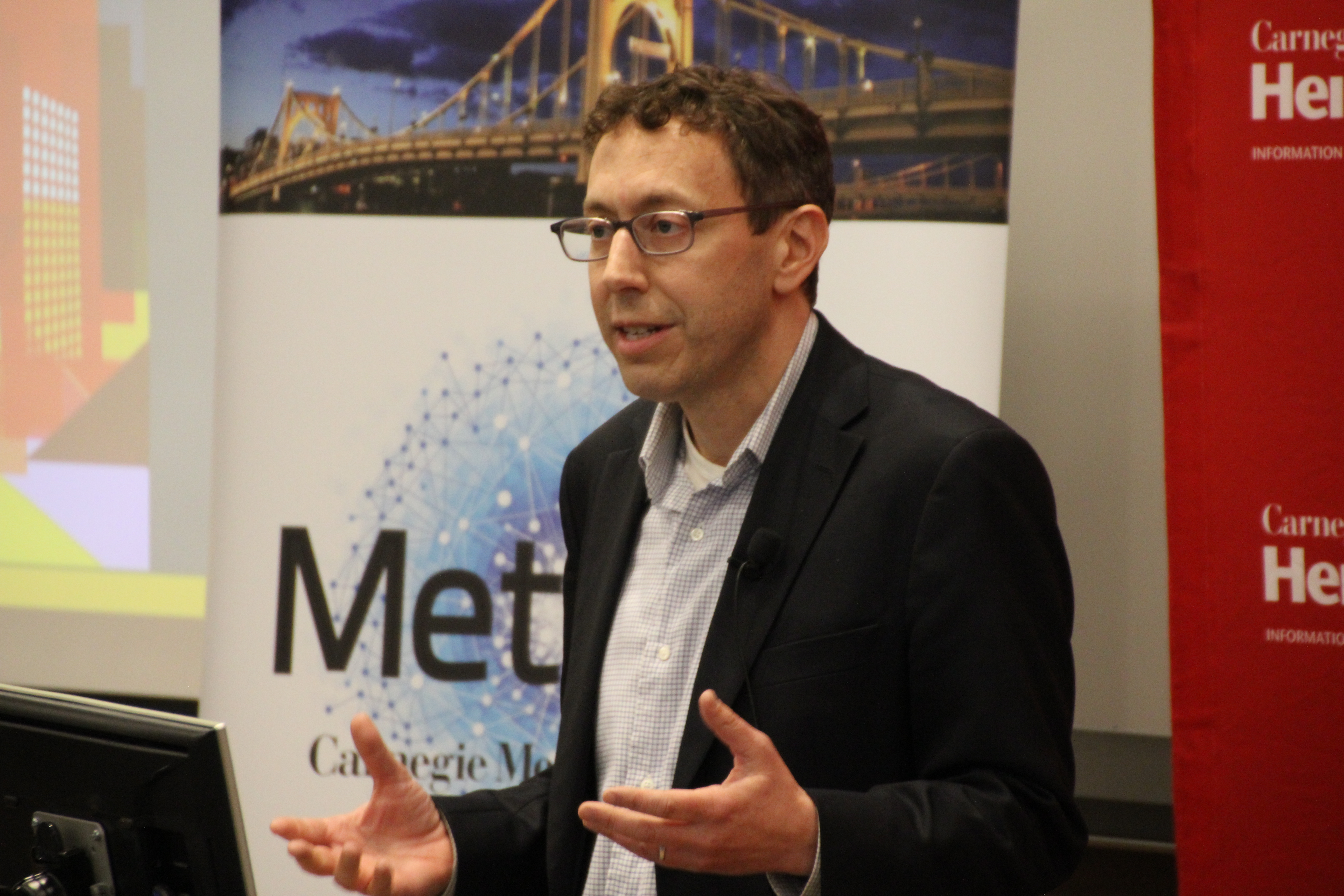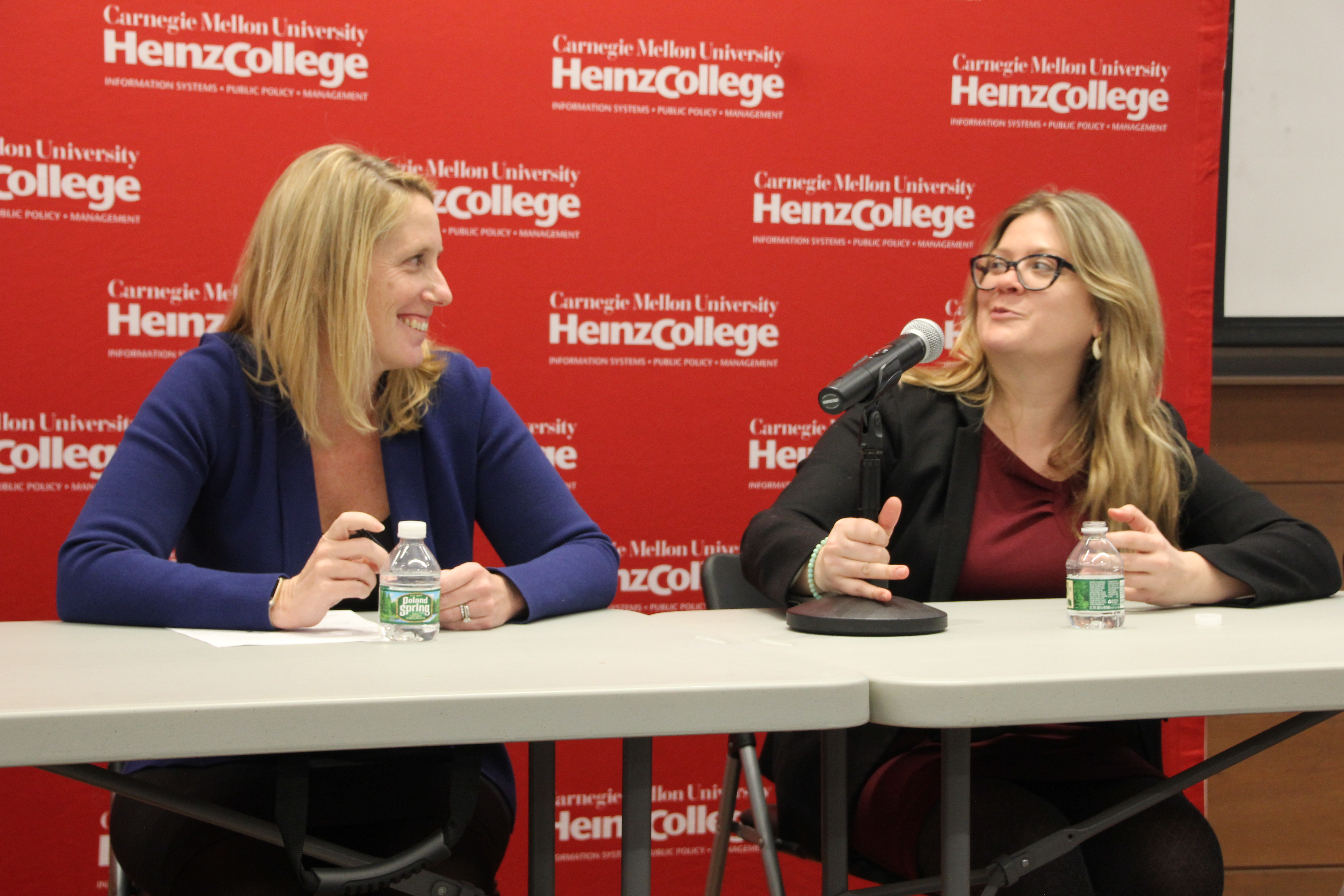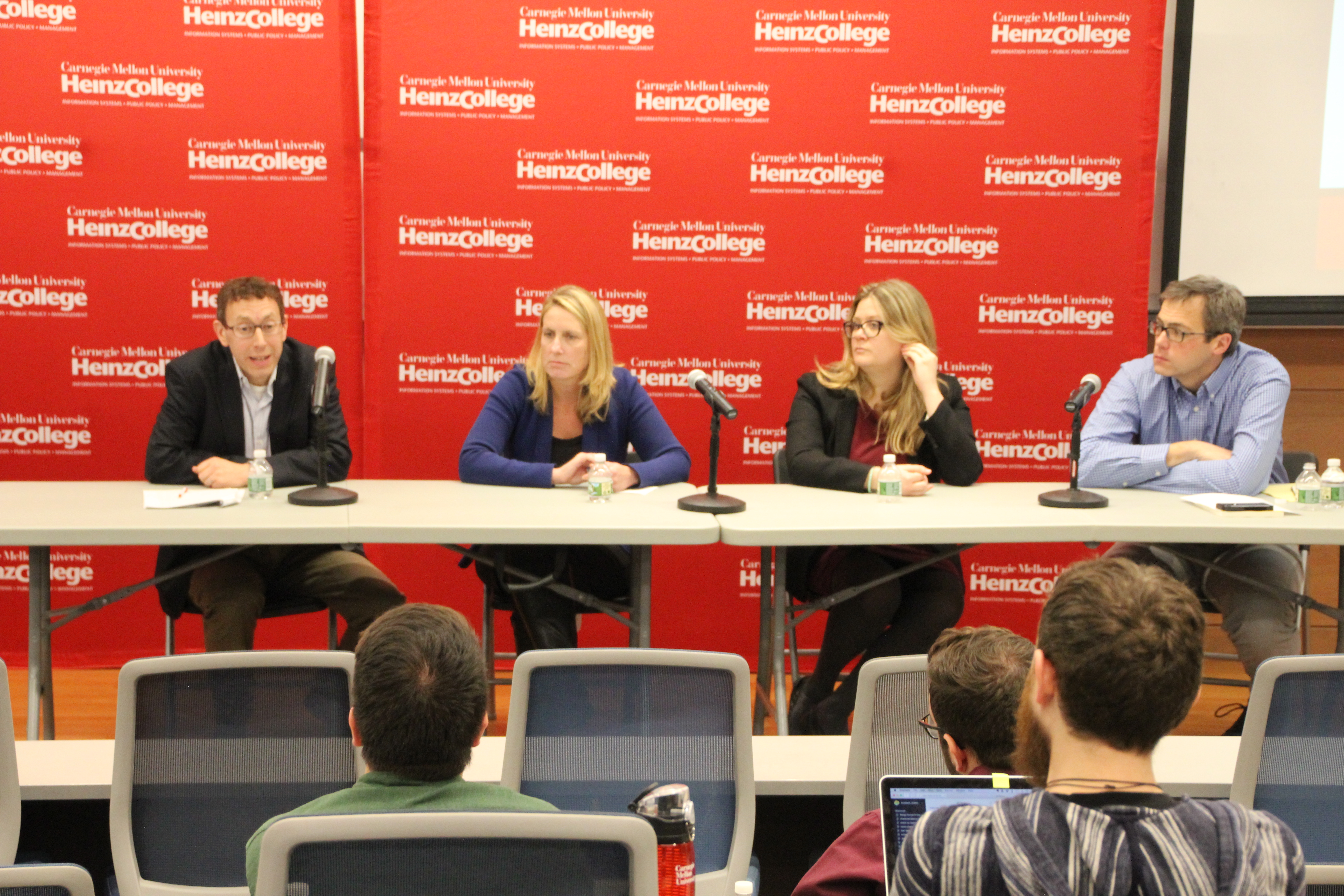
Metro21 Panel Discussion with Neil Kleiman and Local Government Officials
On February 8, Carnegie Mellon University’s Metro21: Smart Cities Initiative and Heinz College hosted a panel discussion featuring New York University Professor Neil Kleiman and three Pittsburgh-area public servants. Before the panel discussion, (led by Executive Director Karen Lightman), Kleiman gave a brief presentation highlighting core components of his new book, A New City O/S: The Power of Open, Collaborative, and Distributed Governance. Co-authored by Harvard professor and former Mayor of Indianapolis Stephen Goldsmith, the book proposes a new “operating system” for city governments - one that moves away from the “Progressive Era” ideals of “relentless dedication to mechanization and efficiency,” toward a model of distributed governance “based on open communication, coordination, and connections in and outside of City Hall.”
Kleiman credits three major building blocks for this new model:
UX: Government Designed with the User in Mind
According to Kleiman, city governments have eschewed ideas of design thinking “for their own convenience, usually from the top-down specifications of a senior official or because government approaches its responsibilities, with an agency-driven, vertical orientation.” A distributed model turns these ideas on their head, focusing on the citizen experience. What does this mean for Kleiman and Goldsmith? It means making government services and information “as easy to understand and navigate as possible.” They believe a User Experience (UX) philosophy is “critical” to rebuilding citizens’ trust in their governments.
City Government that Acts in Time
Another key transformation for city governments revolves around using data analytics to produce “dramatic benefits” for their citizens. The authors use the complicated, costly process of obtaining licenses and permits as a prime opportunity for reform, but also tackle the issue of supporting “frontline workers” - public servants on the street, interacting with citizens on a daily basis. Appropriate use of data analytics opens the door for large, tangible time and cost savings.
A Socio-Technical Ecosystem for City Hall and Beyond
The last component of this transformation toward distributed governance is “The Problem-Solving Public Servant.” UX and data analytics will fall short if city governments do not shift the predominant “ethos of compliance” to public servants as “data-savvy problem solvers”, who are surrounded by a system that encourages autonomy, collaboration, and decentralization.
Erin Dalton (left) and Laura Meixell (right) discuss opportunities and challenges in local government work.
To no one’s surprise, the authors pull examples from the City of Pittsburgh and Allegheny County to make their case. After his presentation, Kleiman sat down to speak with Erin Dalton, Deputy Director at Allegheny County Department of Human Services (DHS), Laura Meixell, Assistant Director of the Department of Innovation and Performance at the City of Pittsburgh, and Bob Gradeck, Project Manager at the Western Pennsylvania Regional Data Center (WPRDC).
Meixell and Gradeck’s work with the WPRDC is an exemplar of one of the projects featured in A New City O/S - the Allegheny County DHS Data Warehouse. The data warehouse and its “Client View” feature has drastically improved DHS employees’ ability to understand their clients and communicate with caseworkers back at the office. The book showcases the data warehouse to emphasize how central intuitive, navigable data tools are for distributed governance. On a similar note, the WPRDC hosts more than 250 datasets open to the public, who are encouraged to engage with the data and pull relevant insights to improve their city.
The panelists discussed the wide array of opportunities in local government work, including the excitement of coalition building, the realities of making visible impacts on thousands of lives, and the pure intellectual challenges of facing problems everywhere they turn. The discussion closed by focusing on an important issue raised in the book: How can city governments attract workers with the appropriate data skills and problem-solving mindset to fuel this transformation toward distributed governance? The panelists acknowledged the challenge, but hope their work in local government inspires those individuals toward a life in public service.

Panelists from left to right: Erin Dalton, Laura Meixell, Bob Gradeck.
